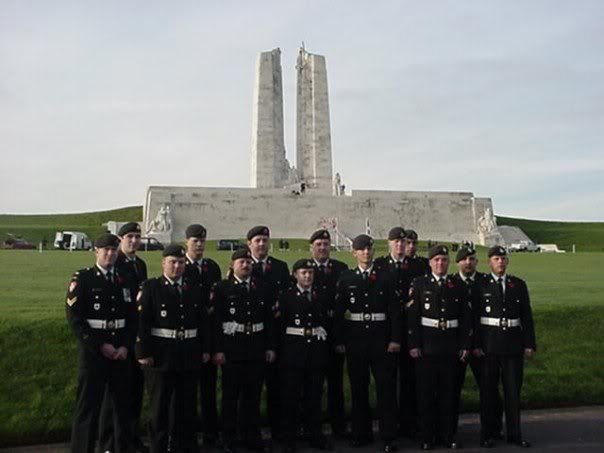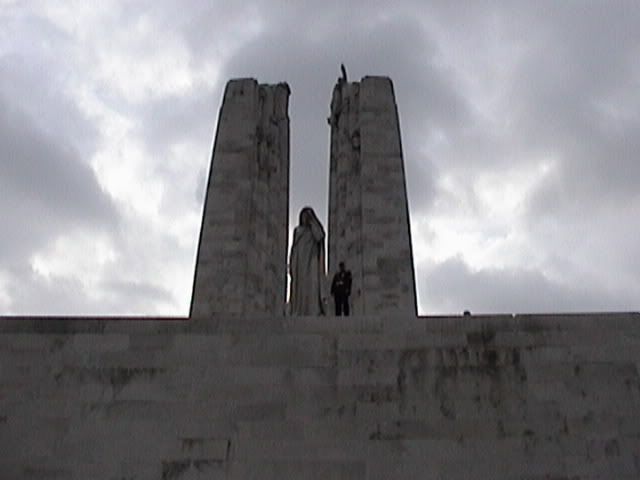He was in a wheelchair and back far enough from the table that I could see his hands clasped together and placed lately on his lap. I asked if the spot was taken and if he had any objections to my joining him. He turned to me and at first his face was blank and expressionless, but a second later the muscles in his face reacted and a genuine smile spread across his face. “Of course my boy good company is always welcome” was the response. His smile was returned in kind and I said think you and sat and quietly enjoyed my soup.
The older gentleman turned his attention back to the window he had been looking out, and his smile disappeared as quickly as it had appeared. He was dressed in a heavy coat more like a trench coat neatly tied in the middle. He wore a suit and tie and bright red poppy on his left lapel, his hair was a little windswept but still neat. The rack of medals on his chest caught the light of the sun as it came through the window. He must have been in his mid eighties, his hair white. His face was thin but he still carried the hint of someone not to be trifled with of his younger days. For me the thing that stood out the most about this distinguished looking gentleman was his eyes.
It is said that the eyes are the window to the soul; this statement is no less true for this man. The eyes of a soldier hold the story of his chosen life, the deep wrinkles etched at the corners of his eyes engraved by sun, wind, rain and snow. On the surface you’ll see the time hardened gaze of a trained observer. But if you take the time and look deeper and harder, you will see much more.
If you take the time you will see the silent pride that only a soldier can know, pride in himself, his country and his comrades, you’ll see his duty, respect and honor. You will see the loyalty, confidence and dignity. But you will also see sorrow, regret, horror and pain. You’ll see guilt, sacrifice and fear. All these things can be seen in the eyes of a soldier. The soldier’s eyes can also see the world around him and he doesn’t see it the same way as the rest of the world. A soldier can see the hearts of other man. The soldier can measure a man by the way he walks, by how he carries himself and by how their eyes meet. Memories are created through the eyes, in an old soldier’s distant stare the decades pass to the days of his youth, when the weight of the world rested on his shoulders. His thoughts don’t drift back to politics or to the price of milk or to what the paper cost. It goes back to the lost loves, the towns and villages that he liberated, to the girls he met and the places he passed through. Mostly he goes back to the young friends he lost, the lives cut short. He sees their young faces staring back, their big smiles untouched by time.
For him the years have passed and the world has changed. Through his old warriors eyes he sees the front-page photo of a young man urinating on a monument that was built to commemorate the dead and their sacrifice. He reads in the newspaper how bronze plaques and nameplates of the dead are stolen from war memorials and are sold as scrap metal. He sees how his government haggles over the cost of restoring overseas monuments. He sees the indifference of a modern world, he sees younger veterans of current wars beaten to within an inch of their lives in their own hometowns. He sees that the country he fought for no longer exists.
So here I sit contemplating this old man and all the others sitting around me on this Remembrance Day. What will the world be like when they’re all gone? Soon all of their old weathered eyes will be closed and they will have surrendered the last battle of their lives. They will have taken their rightful place in history; they will have joined their brothers in arms that took the last patrol before them. We as the current generation will have lost what has been referred to as the greatest generation and we will have lost all their history and the memory of all those old soldiers’ eyes.
By Jack Roelof








